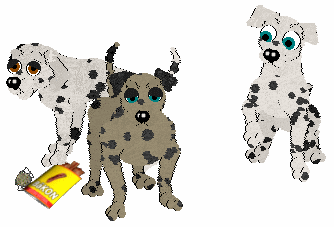

In fact, levels of beta-endorphin, oxytocin and dopamine, among other markers, increased in both humans and their dogs during caring interactions, demonstrating that time spent together is physiologically beneficial for both species. The presence of a pet during stressful activities has been shown to lower the blood pressure of couples taking part in a stressful task. Sharing your life with a pet has been associated with a decreased risk of coronary artery disease, a reduction in stress levels and increased physical activity (especially through dog walking). Higher levels of attachment to dogs has been associated with a greater likelihood of walking the dog and spending more time on those walks as compared with those with a weaker bond to their dogs. For example, a study that looked at attachment to dogs found that people tended to care about their house dogs more than those that lived in the yard. And we tend to care the most for animals that live with us. Many health benefits to humans occur when there is an emotional attachment to pets. In fact, pet owners in Germany and Australia were found to visit their doctor 15 per cent fewer times annually than non-pet owners. Zooeyia (pronounced zoo-AY-uh) is the idea that pets, also known as companion animals, can be good for human health. In the research my colleagues and I have done on aging and social participation, we found considerable analysis showing that interactions involving pets, especially if we care about them, can have a health-protective effect. Spending more time caring for a pet increases attachment to that animal which in turn reduces stress in owners. Thinking of pets as family members can actually make the chores associated with pet care less stressful than they are for those who consider pets as property. Children with pets may have higher levels of empathy and self-esteem compared to those who do not have pets. This can be particularly significant in single-parent families, where a pet can be an important companion to children. More and more often, animals are included in family events and become important to all members of the family. Taking care of an animal can also teach responsibility and stimulate feelings of trust, openness, and companionship.Research shows that children who grow up with a pet develop higher levels of empathy and lower stress levels. According to a 1997 study at the University of Michigan School of Nursing, observing animals in nature can teach valuable characteristics like patience, and help restore mental energy. This carefree, playful attitude, she says, has made many animal-lovers more prone to live in the moment. An animal doesn't care who you are or what outfit you're wearing they want to play and be around you, says Moore. For example, she says, research has shown that recipients of the Meals on Wheels program who were allowed to eat near their pets improved some of their eating patterns.Ī good relationship with your animal friends may spill over into better relations with humans. In some cases, the companionship of animals has helped the nutritional habits of their humans. "In nursing homes, if there's a fish tank where people are eating, seeing those fish actually motivates some residents to eat," says Moore. Thinking happy thoughts when talking to your pet or speaking to birds and squirrels in your backyard may seem silly, but the conversation can put you at ease (even if it's one-sided).Įating alongside bad company may decrease your appetite, but eating in the company of an animal may improve your eating habits. "Happy talk or laughter around animals releases hormones in humans that lower blood pressure, and make animals feel better too," she says. Moore suggests engaging animals in "happy talk," or speaking in an upbeat tone.

A therapeutic pet massage can also be used to regularly check animals for fleas or suspicious bumps, or to relieve muscle knots, says Moore.Ĭommunicating with animals may lower your blood pressure and improve your overall health. Your touch relaxes the animal and releases feel-good endorphins in you, reducing your heart rate. "Give your dog or cat a head-to-tail therapeutic massage by running hand over hand through the body," she says. Moore suggests petting with a purpose to increase the release of feel-good hormones in animals and humans.

Petting your cat or dog may be noticeably enjoyable for them, but the act can relax you, as well.


 0 kommentar(er)
0 kommentar(er)
